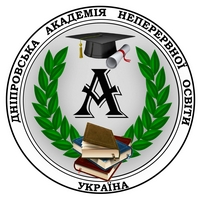До питання організації самостійної роботи студентів у вищій школі (на прикладі підготовки документознавців)
Abstract
The article explores the organization of students’ independent work in higher education institutions (further – HEIs) in Ukraine within the context of the Bologna Process integration. Independent work is emphasized as a crucial component of the educational process, essential for the development of professional knowledge and skills. The author highlights the necessity of adapting European educational principles to the Ukrainian cultural, social, and economic context. The study is based on an analysis of recent publications and pedagogical experience related to the Bologna Process in Ukrainian education. The article references practical experience accumulated by the Department of Documentation and Information Activities Ukrainian State University of Science and Technologies (further – at UDNUT), particularly under conditions of remote learning. The focus is on various aspects and methods of organizing students' independent work using information technologies. Advantages and specific features of extracurricular activities are examined, including their flexibility in content and duration, and the diversity of forms and activities. The need to diversify the technical and technological means of learning, including the use of communication platforms that were not originally planned as a separate educational tool, is substantiated. Concrete examples of effective methods are provided, such as the use of multimedia presentations, analysis of situational tasks, bibliographic training, and professional video blogging. The article underscores the necessity of democratizing and dialogizing the educational process, moving away from a mentoring model towards a role for educators as consultants and moderators. This shift allows students to demonstrate initiative, develop creative abilities, and enhance analytical thinking, aligning with the demands of a modern information society. The study critiques the idealized image of a creative, autonomous student often portrayed in Ukrainian publications, emphasizing the gap between this ideal and the reality faced by many students. It calls for a problematization of optimistic views on independent work within the Ukrainian context, considering the significant cultural, social, and economic differences. The achievements of independent work should include: improving skills acquired in the classroom, creating conditions conducive to team building and cooperation, broadening students' horizons, and organizing their leisure time. Extracurricular activities can range from traditional group sessions and competitions to innovative projects such as creating multimedia presentations and professional vlogs. The article suggests further development of diverse independent work methods, aiming to foster students' professional and personal qualities in line with the Bologna Process principles. The integration of new technologies and communication platforms is seen as essential for enhancing the effectiveness of independent work and preparing students for the demands of the modern professional environment. In conclusion, the article proposes numerous ideas for enriching the forms and methods of independent work, emphasizing the importance of mutual interest and collaboration between educators and students, and a clear understanding of professional growth and self-realization perspectives.
References
2. Лукащук В. Модернізація української вищої освіти в контексті Болонського процесу. Український соціум. 2013. № 3. С. 77–85.
3. Лучанінова О. П. Проблемне поле нових освітніх парадигм і розвитку особистості здобувача вищої освіти. Документ: історія, лінгвістика, дидактика, суспільне призначення: монографія / за заг. ред. О. В. Михайлюка, К. А. Прокоф’євої, О. М. Решетілової, С. В. Савченка. Дніпро: УДУНТ, 2023. С. 115–119.
4. Лучанінова О. П. Розвинені здатності студента як основа його професійної компетентності. Документ: історія, лінгвістика, дидактика, суспільне призначення: монографія / за заг. ред. О. В. Михайлюка, К. А. Прокоф’євої, О. М. Решетілової, С. В. Савченка. Дніпро: УДУНТ, 2023. С. 122–125.
5. Лучанінова О. П. Університетські рівні – надбання здобувача вищої освіти як особистості. Документ: історія, лінгвістика, дидактика, суспільне призначення: монографія / за заг. ред. О. В. Михайлюка, К. А. Прокоф’євої, О. М. Решетілової, С. В. Савченка. Дніпро: УДУНТ, 2023. С. 119–122.
6. Методичні рекомендації з організації самостійної роботи бакалаврів напряму 0201 «Культура»: для студентів I–IV курсів гуманітарного факультету / укладачі: К. А. Прокоф’єва, О. Ю. Висоцький. Дніпропетровськ: НМетАУ, 2007. 44 с.
7. Огнівчук Л. Організація самостійної роботи студентів ВНЗ із застосуванням технологій e-learning. Інформаційні технології і засоби навчання. 2014. Т. 41. № 3. С. 187–195.
8. Прокоф’єва К. А. Активізація інтересу студентів до самостійної роботи. Документ: історія, лінгвістика, дидактика, суспільне призначення: монографія / за заг. ред. О. В. Михайлюка, К. А. Прокоф’євої, О. М. Решетілової, С. В. Савченка. Дніпро: УДУНТ, 2023. С. 137–147.
9. Прокоф’єва К. А. Сутність та призначення самостійної роботи студентів сучасного ЗВО. Документ: історія, лінгвістика, дидактика, суспільне призначення: монографія / за заг. ред. О. В. Михайлюка, К. А. Прокоф’євої, О. М. Решетілової, С. В. Савченка. Дніпро: УДУНТ, 2023. С. 125–127.
10. Прокоф’єва К. А., Решетілова О. М. Методологічні засади організації самостійної роботи студентів-документознавців. Документ: історія, лінгвістика, дидактика, суспільне призначення: монографія / за заг. ред. О. В. Михайлюка, К. А. Прокоф’євої, О. М. Решетілової, С. В. Савченка. Дніпро: УДУНТ, 2023. С. 127–137.
11. Прокоф’єва К. А., Чумакова Г. А. Специфіка самостійної роботи студентів-документознавців. Проблеми науки, освіти, практики: матеріали V Міжнар. наук.-практ. конф. (м. Київ, 20–22 травня 2008). Київ: б/в, 2008. С. 170–173.
12. Рощина Л. О., Захарова О. О. Болонський процес та його вплив на самореалізацію студента. Наука. Релігія. Суспільство. 2011. № 1. С. 89–93.
13. Савченко С. В., Прокоф’єва К. А., Решетілова О. М. Потенціал використання Telegram у дистанційному навчанні. Сучасні інформаційні та комунікаційні технології на транспорті, в промисловості та освіті: збірка тез XVI Міжнародної наук.-практ. конф.(м. Дніпро, 14–15 грудня 2022 р.). Дніпро: ДІІТ., 2022. С. 135–136.
14. Спільна декларація міністрів освіти Європи «Європейський простір у сфері вищої освіти». Болонья, 19 червня 1999 року. URL: https://zakon.rada.gov.ua/laws/show/994_525#Text (дата звернення: 29.05.2024).
15. Тамаркіна О. Самостійна робота студентів ЗВО в умовах дистанційного навчання. Актуальні питання гуманітарних наук. 2020. Вип. 34. Т. 5. С. 228–231.
16. Туряниця В. Самостійна робота студентів як вид творчої діяльності, фактор модернізації навчального процесу та підвищення якості вищої освіти. Науковий вісник Ужгородського університету. Серія: педагогіка, соціальна робота. 2016. Вип. 1 (38). С. 302–305.

 ISSN
ISSN  ISSN
ISSN 

